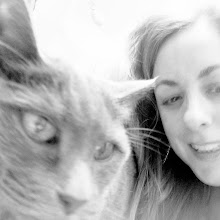Up through 1983's Under a Blood Red Sky, U2 were speaking to me in a way Brian Eno was not. U2 were bold and direct; Eno was subtle and elliptical. He could rock like a motherfucker, but everything was off-kilter. Nothing was straightforward. Incidentally, Boy (1980) was the first U2 album I ever heard. It was introduced to me by my much hipper radio show co-host, Missy, who had grown up on Bay Area college stations like KALX and KUSF. A fan was born. (Oddly enough, she would abandon radio before the year was through, while I kept at it for another couple of decades.)
From then on, I was on my own and the well-stocked, 100-watt KWCW ("Walla Walla's finest") was my oyster. Meanwhile, I kept getting better and better time slots. I was in my element and enjoying my show more than many of my classes, not counting creative writing and a particularly eye-opening seminar on Camus. So, why did I abandon U2? They released 1984's The Unforgettable Fire and I decided they'd taken the "anthemic" thing too far. (That said, I still sing along with "In the Name of Love" every time I hear it. It's like some kind of Pavlovian response.)
In 1985, I took a road trip from Seattle to San Francisco with my friend Brian. He brought along a mixtape another friend had made. He didn't know who many of the artists were, only that he liked them, and we played it through the night and into the next afternoon when we arrived in the city by the Bay. I never tired of it. The artists were all UK acts from the 1980s, except for one skinny little dude from the 1970s, who fit right in. The contemporary acts included OMD, Simple Minds, and Love & Rockets. The "skinny little dude" was, of course, Eno. I hadn't heard most of the selections before--at least not in that context (more on that later). The songs were: "Burning Airlines (Give You So Much More)," "The Fat Lady of Limbourg," "Third Uncle," "Put a Straw Under Baby," and "China My China." Turns out all were from 1974's Taking Tiger Mountain (by Strategy). Half the album, in fact. Years later, while reading Anchee Min's quasi-autobiographical Red Azalea, I found out where Eno got the title: From one of Madame Mao's revolutionary operas (in which Min performed alongside comrade Joan Chen). As for Brian, he gave me the tape at the end of our trip, though I saw him less and less as the years went by. We never lived in the same place at the same time. The last time we got together, it was to see Chen Kaige's epic tragedy Farewell, My Concubine (1993). "China My China" indeed.
Third Uncle
There are tins,
There was pork
There are legs,
There are sharks
There was John,
There are cliffs,
There was Mother,
There's a poker
There was you,
Then there was you
There are scenes,
There are blues
There are boots,
There are shoes
There are Turks,
There are fools
There are Rockers,
They're in schools
There was you,
Then there was you
Burn my fingers,
Burn my toes
Burn my uncle,
Burn his books
Burn his shoes,
Cook the leather,
Put it on me.
Does it fit me
Or you?
It looks tight on you.
Part of what drew me to the Strategy cycle is that I was already familiar with "Third Uncle" via Bauhaus's fantastically faithful rendition (1982's The Sky's Gone Out), and I was really getting into those arty goths. As usual, my timing was off; Bauhaus had recently broken up and splintered into Tones on Tail, Love & Rockets, and Dali's Car (a name swiped from Eno). In fact, I was convinced that "The Flat Field" ("I could get bored / I could get bored / In the flat field") was written just for those of us, like my Bauhaus-loving, Galoise-smoking pal Chris, who happened to be pursuing an art degree in the rather un-artistic flatlands of Walla Walla. Scion of a wealthy Wapato apple dynasty, Chris, who was friends with fellow Whitmanites Chris and Carla, from the Walkabouts, would go on to design the album cover for 1987's See Beautiful Rattlesnake Gardens. (He also dated Missy for awhile.)
But back to Eno-by-way-of-Bauhaus. I was thrilled to get to hear the original version of a song I didn't even realize was a cover. Not only did it rock just as hard as punk--it rocked harder. "Third Uncle" remains one of the fastest songs I've ever heard. But not too fast. No one would mistake it for speed metal and the bizarro lyrics are perfectly, intriguingly clear. Of course, I shouldn't have been surprised that "Third Uncle" wasn't a Bauhaus original. I knew that "Telegram Sam" (from their first 1980 Peel Session) and "Ziggy Stardust" (which can also be found on the 1979-1983 collection) were covers as I was already familiar with T. Rex and David Bowie, for whom Eno would produce the landmark Low/Heroes/Lodger trilogy (and only a few years later, I would wade further into the wide wonders of glam). They're all good covers and just make me regret all the more that I wasn't able to catch the Bauhaus reunion gig in Seattle last week--$35 was just a bit too rich for my blood--but at least I got to see Peter Murphy and Love and Rockets when I was living in London in 1986, between graduating from college and moving back to Alaska.
After a year of being "anchored down in Anchorage," in which I made a little progress--very little--in paying off my student loan (by working at KWHL, writing for The Anchorage Times, etc.), I moved to Seattle. (And I'm happy to say that that debt is many years behind me now). The year was 1988 and I got a job at Cellophane Square shortly after I arrived. The pay was shit, but it's what I wanted to do. I also started doing a radio show on KCMU and writing for The Wire and the short-lived Hype. Meanwhile, I began building up my music collection in earnest (while discovering more new bands by the minute). Three Eno CDs were part of the hoard I acquired during my four years in the music retail trade: Here Come the Warm Jets, Taking Tiger Mountain, and Before and After Science. Incidentally, as I'm writing this, I'm listening to the station KCMU morphed into, KEXP, and the DJ is playing "Head On" by the Jesus and Mary Chain. I hadn't noticed it before--until this very second--but they nick the stuttering guitar line from "Baby's on Fire." Who's the DJ? Why a fellow named Jack, who was in my class at Whitman. I didn't know him well, but he was friends was Andy, with whom I had gone to high school (and who lived next door to my friend, Katie, whose mother, Betty, was friends with my mom). In 1994, Jack contacted me, out of the blue, to ask my advice about getting into commercial radio. I had left KCMU in the early-1990s and was working full-time at Microsoft as a queue announcer and part-time at KNDD as a DJ. I suggested he look into volunteering at KCMU. Well, I never heard from him again, but not long afterwards, he was doing a radio show. Next thing I knew, he became the station's full-time production manager, a position he has held for over a decade now.
Note: Part one of four. Lyrics and cover image from enoweb.









